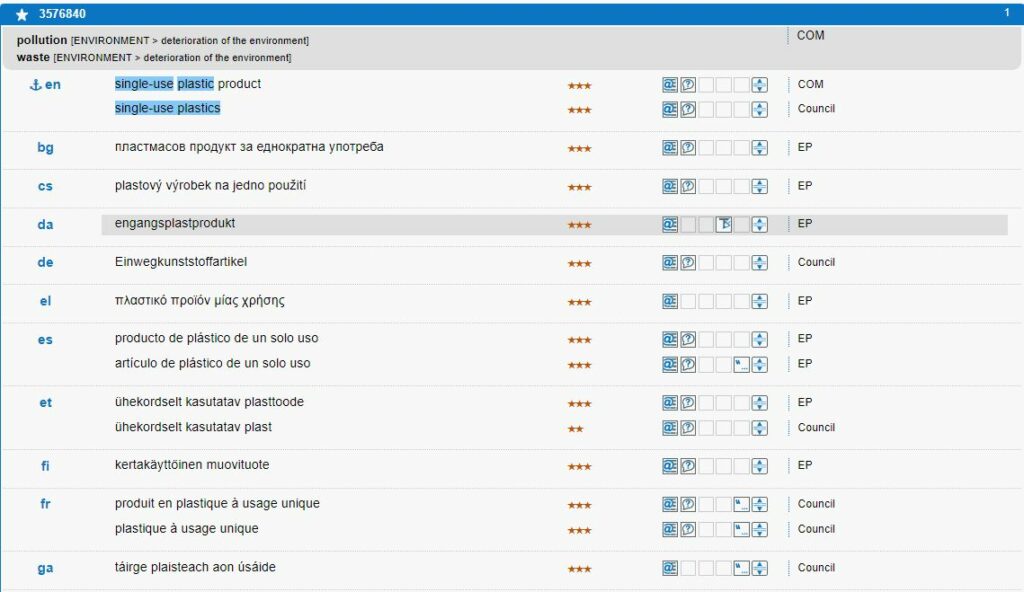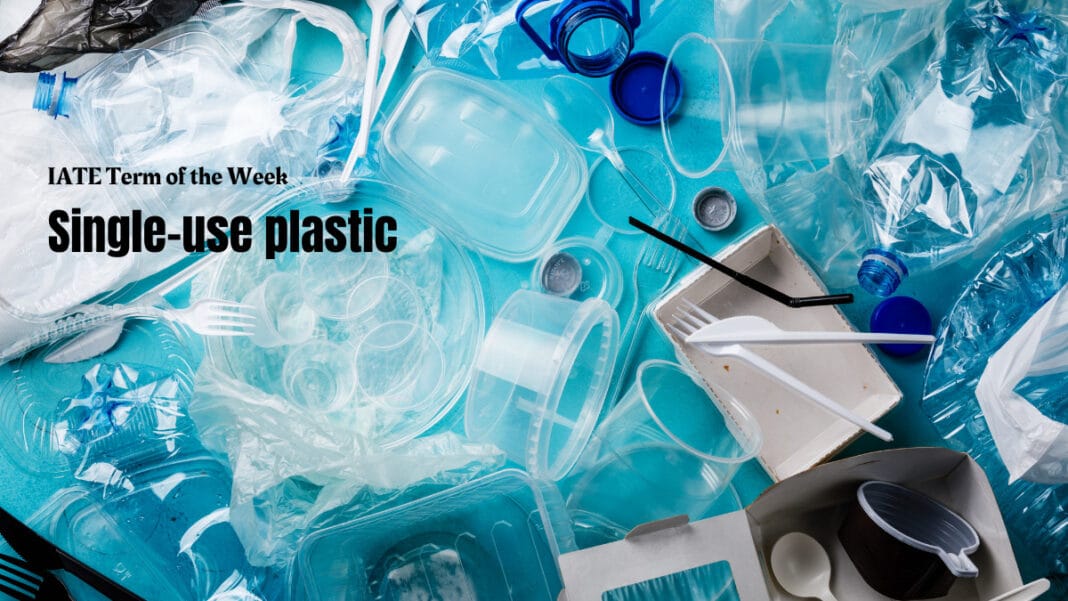The EU is tackling single-use plastic products (SUPs) and is promoting sustainable alternatives. Single-use plastic items are often used once, or for a short time, and are then discarded. The impact of the resulting plastic pollution is a global problem. The products are more likely to end up in our seas and on our beaches than the reusable alternatives. Further, 70 % of all marine litter in the EU consist of SUPs. The goal is to reduce litter, develop a circular economy and to promote a sustainable future for all.
The plastic problem in figures:
- 80 – 85 % of marine litter found on beaches in Europe is plastic
- 50 % of this type of litter consists of single-use plastic items
- 13 billion Euro a year of damage to the marine ecosystem is caused by plastic globally
The EU will ban single-use plastic products from 3 July 2021
Sustainable alternatives will replace single-use plastics if options exist. The ban will apply to:
- Cotton bud sticks
- Cutlery
- Plates
- Straws
- Stirrers
- Sticks for balloons.
Further, beverage and food containers as well as cups made of expanded polystyrene will also be banned. In addition to these items, all products made of oxo-degradable plastic (mainly used for shopping bags) will also be prohibited. The European Commission does not consider biodegradable plastic options as an alternative.

What about the other single-use plastic products?
The EU focuses on limiting the use of additional items. Awareness-raising measures will be taken to reduce the consumption as well as requirements to connect plastic caps to bottles. Further, labelling requirements will be introduced to inform consumers about the plastics of products, the proper disposal options as well as the harm to the environment caused by littering. In addition to this, Producer Responsibility schemes will be introduced, including a clean-up obligation and waste management. The producers will help to cover the costs of waste collection, litter clean-up and raising awareness for items such as: bottles, cups, crisp packets and sweet wrappers, light plastic shopping bags and tobacco products with filters.
Specific targets have been set, including plastic bottle collections and the usage of recycled plastic in PET beverage bottles. By 2029, 9 out of 10 plastic bottles must be collected and producers must find methods to put the plans into practice.
Further, from 1 July 2021, a deposit will be placed for plastic beverage bottles in the Netherlands: 15 cents for bottles containing less than 1 litre and 25 cents for bottles of 1-3 litres. Deposit stations will be set up at train stations, supermarkets and petrol stations. Again, the producers are responsible for this.

IATE goes AUDIO provides short audio clips in different languages explaining IATE Terms of the Week in a clear and concise manner. The aim of this initiative is to make IATE terminology accessible to a wider audience.
This week, you can tune in to another IATE goes Audio feature: click below to listen to ‘Single-use plastic’ explained in Spanish.
References
MIWA. 2021. European Commission Plan to Eliminate Single-Use Plastics. [ONLINE] Available at: https://www.miwa.eu/blog/article58. [Accessed 18 March 2021].
SDG Knowledge Hub. 2021. European Parliament Passes Single-use Plastic Ban. [ONLINE] Available at: https://sdg.iisd.org/news/european-parliament-passes-single-use-plastic-ban/. [Accessed 18 March 2021].
Letsrecycle. 2021. UK and EU prepare for single use plastic bans. [ONLINE] Available at: https://www.letsrecycle.com/news/latest-news/uk-and-eu-prepare-for-single-use-plastic-bans/. [Accessed 18 March 2021].
Politico. 2021. The fight to define single-use plastics. [ONLINE] Available at: https://www.politico.eu/article/the-fight-to-define-single-use-plastics/. [Accessed 18 March 2021].

Written by Victoria Milhan, Schuman Communication Trainee Terminology Coordination Unit. She holds master’s degrees in English Language (linguistics) and Medieval English Literature, Newer English Literature and Celtic Studies. Victoria is enrolled as a PhD student at Bonn University in Germany.

